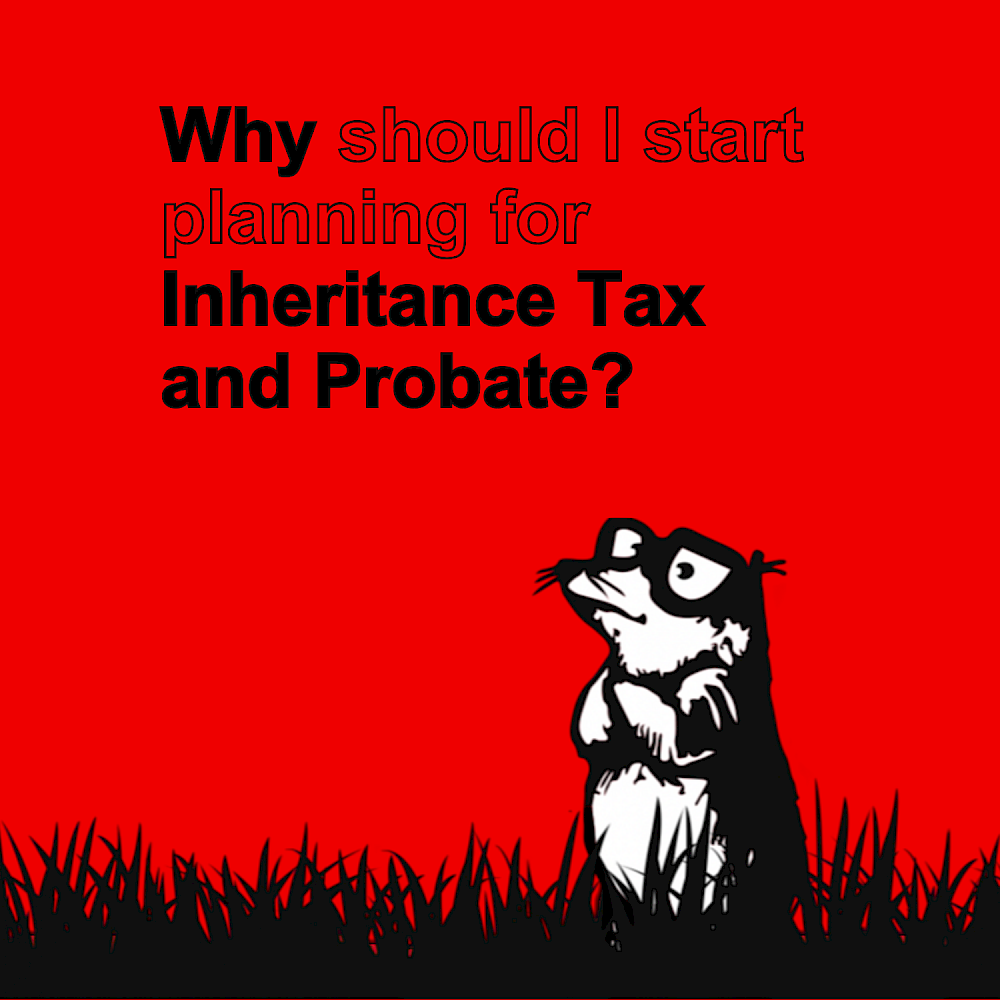Passing on Wealth: A Guide to Inheritance Tax
20 February 2025 Reading time: 6 minutes

What is inheritance tax?
When someone dies you have to pay tax on the property, money and possessions they owned. These assets are known as a person’s estate. That's right, even in death, you can't escape the clutches of HMRC.
Do I have to pay inheritance tax?
Not everyone has to pay inheritance tax. If the value of the estate is below a certain threshold (currently £325,000), you're off the hook. Additionally, if you leave everything to your spouse, civil partner, a charity, or a community sports club, you can avoid paying inheritance tax on that portion of the estate. If your house is given away to children or grandchildren the threshold of £325,000 can increase up to £500,000. Your tax-free threshold can also increase to £500,000 if you own your home and your estate is worth less than £2miilion.
It is important to note that even if the estate’s value is below the threshold, you may still need to report it.
What are the deadlines?
If the estate owes inheritance tax you will need to pay the tax within six months of their death. You can make a payment even if you haven’t finished valuing the estate.
You must also send inheritance tax forms within one year.If you do not meet these deadlines there will be financial penalties.
Can I gift items before my death?
You may decide to start passing assets on to people before you die, these are referred to as gifts. If they meet the eligible criteria, they will not be included in the value of your estate and consequently, won’t be subject to inheritance tax.
Gifts can include:
- Money
- Household/personal goods – such as furniture or jewellery
- House, land or buildings
- Stocks and shares
If these gifts were given less than 7 years before the person died they may still be subject to inheritance tax. Anything you gift to a spouse, civil partner, charity or political party will not be taxed, regardless of when they were gifted as long as they live in the UK permanently.
You also get an annual exemption, meaning you can gift a total of £3,000 a year and these gifts won’t be added to the value of your estate if you die within 7 years. You can carry forward any unused annual exemption to the next tax year, but it can only be carried for 1 year. You can also gift £250 each to as many people as you like as long as they were not included in another allowance. Birthday and Christmas gifts paid with your regular income are also exempt from inheritance tax. For more detailed information on gifting please visit the government website.
Anything left in a will is not classed as a gift but is instead part of your estate. It is the value of your estate that is used to work out the amount of inheritance tax that needs to be paid. Furthermore, any gifts that you still benefit from even after gifting are included in the value of your estate.
What is taper relief?
Any gift given at least 7 years before you die are tax free unless it is part of a trust. This is referred to as the 7-year rule. It's a bit like a tax countdown, and the clock starts ticking as soon as you make the gift.
Any gifts you have sent within the 7 years before your death will be subject to inheritance tax, but the amount you pay decreases depending on how long ago you gifted it. This is called ‘taper relief’.
|
Years between gift and death |
Tax Rate |
|
0-3 |
40% |
|
3-4 |
32% |
|
4-5 |
24% |
|
5-6 |
16% |
|
6-7 |
8% |
|
7+ |
0% |
As a result, it is important to keep a record of any gifts you have made, including when it happened, how much it was worth and who you gave it to.
How do I value an estate?
Valuing an estate can be a complex process. You'll need to consider the value of everything from property and investments to their collection of antique teapots. You must identify any property, personal possessions, bank accounts, savings, shares and pensions as well as debts owned by the deceased. You will need to write to the organisations related to each asset, including a copy of the death certificate, and ask them to provide you with the value of the asset or debt when the person died.
For items such as paintings and jewellery, use their market value. If an asset was joint, there are different rules you will need to apply when working out the value to be included in the estate.
You do not include debts when estimating the gross value of the estate but you will need to tell HMRC about these when you report the estate value to them.
The value of any gifts that had been given in the 7 years prior to their death will also need to be included.
The value of the estate will determine how you need to report it to HMRC.
Inheritance Tax Rates
The standard inheritance tax rate is 40%, but this is only charged on the value of your estate above the threshold.
For example, if your estate’s value was £600,000 and the threshold £325,000 you would pay 40% tax on £275,000 (the amount above the threshold). Thus, the total tax you would pay on this estate is £110,000.
The inheritance tax rate can be reduced to 36% if you leave at least 10% of your net estate to charity in your will.
Paying the Taxman: A Timely Affair
If you owe inheritance tax, you'll need to pay it within six months of the person's death. Late payments can result in hefty penalties, so it's best to plan ahead.
Any inheritance tax owed is paid from the estate to HMRC. This is carried out by the person dealing with the estate, often the executor. You will need to apply for a payment reference number at least 3 weeks before you make a payment. If you cannot access the funds from the estate to pay the bill before the deadline you can ask to postpone paying inheritance tax.
If you do not know the exact amount of tax owed before the deadline you can make a payment referred to as a ‘payment on account’. If you do not pay all the tax owed by the deadline you will be charged interest on the outstanding amount. If you have overpaid, you will then receive a refund from HMRC once you’ve been given probate. HMRC will also pay interest on this amount. To receive this, you will need to write to HMRC.
Beneficiaries of the estate do not normally pay tax when they inherit things, unless it becomes a taxable asset in the future. Such as receiving rental income from a property they had been left.
Do I need to keep any records?
You must keep any documents related to the valuing, reporting and distribution of the estate. This includes the will, inheritance tax forms, records showing the value of the assets, final accounts and so forth.
What changes were announced in the Autumn Budget 2024?
The government has proposed to reform agricultural property relief and business property relief from 6 April 2026. Currently, qualifying businesses and agricultural assets can claim up to 100% relief with no financial limit. From April 2026 it is proposed that the 100% relief will only apply to the first £1million of combined agricultural and business property, reducing to 50% for any value that exceeds this.
It has also been proposed that the rate of business property relief for shares ‘not listed’ on the markets of recognised stock exchanges will be reduced from 100% to 50%.
In Conclusion
While death and taxes may be certainties, understanding Inheritance Tax can help you minimize the financial burden on your loved ones. So, the next time you're making a will or thinking about gifting assets, remember the taxman is always watching.
For more information on inheritance tax please visit the government website.




